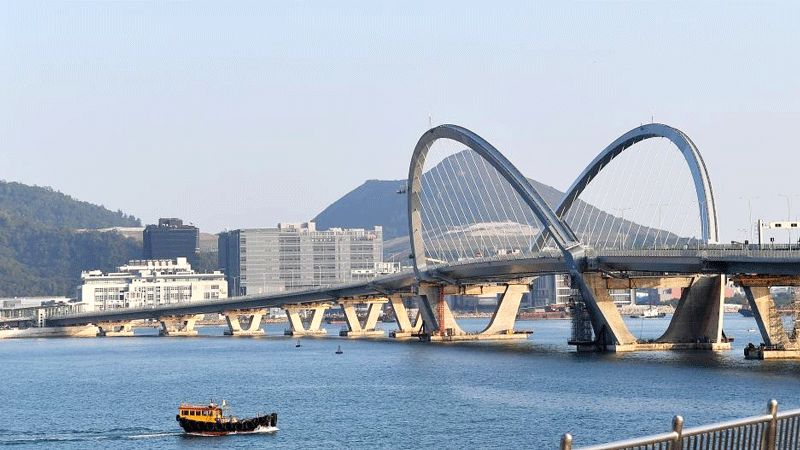EU business community worried about U.S. Inflation Reduction Act
PARIS, Dec.13 (Xinhua) -- As Europe suffers the consequences of the energy crisis and high inflation, the United States Congress passed the Inflation Reduction Act (IRA) in August.
As the IRA aimed to promote the production and use of electric vehicles and other green technologies in the United States through protectionist subsidy policies. The move prompted the European Union (EU) to cry foul.
Business leaders across the EU argue that the IRA threatens EU industries and that the reindustrialization of the United States should not bring about deindustrialization in Europe.
According to a survey conducted by the Association of German Chambers of Industry and Commerce (DIHK), 39 percent of its member companies in the United States plan to increase investments in the coming months, while only 17 percent are reducing their investments.
Currently, several EU companies are concerned about the new U.S. tax incentives in the automotive and environmental sectors, which only apply to production in the United States, and thus discriminate against German companies and, according to experts, clearly violate World Trade Organization (WTO) rules, Volker Treier, head of foreign trade at the DIHK, said.
DIHK's business survey also shows that one in five companies active in the German automotive supply industry is planning to build up production abroad, especially because of the country's particularly high energy prices.
Siemens Energy believes that a quick response from Europe's economic policymakers to the U.S. IRA is necessary to keep energy infrastructure capacity on the continent.
In absence of such a reaction, manufacturing capacities would be built up in the United States rather than in Europe. "This is an absolutely critical time," Christian Bruch, chief executive officer (CEO) of Siemens Energy, said.
Sweden-based electric vehicle battery maker Northvolt is considering delaying its plans to build a factory in Heide, northern Germany, according to a Reuters report.
Under the IRA, Northvolt could receive up to 800 million euros (842 million U.S. dollars) in U.S. aid to build a factory, which is four times what the German government is offering, Reuters reported, quoting Northvolt CEO Peter Carlsson.
Olivier Joris, executive manager of the Federation of Enterprises in Belgium (FEB/VBO), called the U.S. subsidies "a protectionist stab in the back from the Americans".
"What worries us is that the investments will be directed more towards the United States than to Europe because of these local content obligations," he told the Belgian newspaper L'Echo.
According to Professor Bruno Colmant, member of the Belgian Royal Academy, Washington's protectionist measures have shaken the EU industries.
The United States, he wrote, has always had doctrines that suit its own interests. "Their multilateralism is an argument of circumstance."
Recalling the global financial crises of 1971 and 2008, both of which started in the United States, Colmant said that Washington never ends its wars or pays off its debts.
Paris is implementing the France 2030 investment roadmap to support the country's ecological and economic transition, but since the outbreak of the energy crisis, the reindustrialization related to energy transformation and technological innovation has slowed down.
France is particularly dissatisfied with the "super aggressiveness" of the U.S. industrial subsidy policy towards European companies.
Addressing business leaders and the U.S. Congress on Nov. 30, French President Emmanuel Macron warned that "Perhaps (the IRA) will solve your problems, but it will make ours worse."
Later that day, Macron again spoke of the "discriminatory" subsidies of the United States, saying that the IRA could cause "problems" in Franco-American relations and "will fragment the west."
Discussing the IRA, France's economic newspaper Les Echos asked "how can we accept that Europeans should pay five times more for gas from Texas than American consumers? Especially when we are the first to suffer the consequences of the sanctions against Russia. "
It is time to consider America as not only a "necessary partner", but also a "systemic rival", it said.
Photos
Related Stories
- Founder of crypto exchange FTX faces charges from multiple U.S. agencies
- Multiple respiratory viruses "co-circulating" with flu in U.S.: CDC
- Rising COVID-19 hospitalizations pose threats for U.S. seniors
- Co-circulation of viruses to put pressure on EU healthcare systems: ECDC
- Iran slams U.S. claims of supporting Iranian women
- Key COVID-19 indicators surge again in U.S., straining hospitals
- 15 oil vessels blocked at Turkish Straits amid EU sanctions on Russian oil
- EU sanctions on Russia cost Cyprus 20 pct of oil tanker fleet: deputy minister
- US drops charges against Meng Wanzhou
- When democracy becomes who-is-worse game
Copyright © 2022 People's Daily Online. All Rights Reserved.









